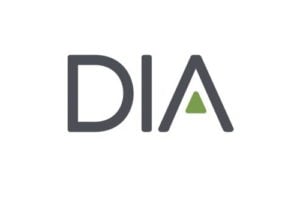Writing in the June edition of DIA’s Global Forum magazine, representatives of Japanese pharmaceutical companies with US operations outline how the COVID-19 pandemic affected their ongoing clinical studies.
The spread of COVID-19 and the resulting social activity restrictions have severely impacted drug development and threatened the continuity of clinical trials in the US. Japanese pharmaceutical companies that develop drugs in the US were affected by these unprecedented circumstances as severely as US companies.
Moreover, due to their relatively limited financial and human resources (compared to the US pharmaceutical giants), these Japanese companies were forced to be more cautious in their decisions to start, postpone, or suspend clinical trials. How did these expatriates of Japanese companies in the US handle this pandemic?
Background
The Project Planning & Management (PP&M) Forum was founded to promote dialogue and reflection on the promotion of drug development projects and to enhance world-class project management skills. Its NY (New York) Chapter consists of representatives of subsidiaries of Japanese pharmaceutical companies located on the US East Coast. The NY Chapter of the PP&M Forum conducted an urgent survey of its members in July 2020 to find out how Japanese project management expatriates managed their projects, encouraged rational decision-making, and documented their valuable management experience under this high state of alert. The group has 120 individual members from approximately 30 companies, 29 of which provided information through this survey.
Study Phases
Survey responses were divided into study phases. Companies were allowed to choose more than one response, so the total number of responses exceeds 100%.
What study phase were you conducting or preparing when the pandemic began?
| TOTAL NUMBER OF RESPONDING COMPANIES | 29 | |
| PHASE 1 STUDY | 13 | 44.8% |
| PHASE 2 OR 3 STUDY | 11 | 37.9% |
| NONE | 5 | 17.2% |
What aspects of project management were significantly affected by the pandemic?
Survey results indicate that the project management aspects most significantly affected by the pandemic were timeline, stakeholder management (i.e., explanation and coordination of opinions with internal and external stakeholders), cost, and quality (including patient safety). These are consistent with what project managers do most to ensure their projects’ success when managing clinical trials.
| TOTAL NUMBER OF RESPONDING COMPANIES (MULTIPLE ANSWERS ALLOWED) |
29 | |
| TIMELINE MANAGEMENT | 20 | 69.0% |
| STAKEHOLDER MANAGEMENT | 14 | 48.3% |
| QUALITY MANAGEMENT | 8 | 27.6% |
| OTHER | 1 | 3.4% |
These aspects of the impact of the pandemic as well as project management actions taken in response are explained in separate sections below.
Stakeholder Management
How was the decision to suspend or discontinue your study made?
Five of thirteen companies conducting phase 1 studies decided to suspend or discontinue them due to COVID-19. Four of these five indicated that their decision to discontinue the clinical trial was based on information gathered by and recommendations from the trial CRO; recommendations from CROs that owned their phase 1 sites seemed particularly important. The one remaining answer was based on the principal investigator’s opinion.
Sponsors seem to have made their decision after fully taking into account the situation at clinical trial sites – their major stakeholders. Most decisions to discontinue were made in response to the lockdown (four out of five cases). This lockdown had a significant impact on stakeholder management, including stakeholders at company headquarters in Japan. There is no detailed information on the studies that were not suspended, but since the impact of the pandemic varied even within the US, the studies that were not suspended might have been conducted in less affected areas.
Among the eleven companies conducting phase 2 or phase 3 studies, four responded that their clinical trials were suspended or discontinued. Two of these four answered that the entire study was immediately and fully discontinued; the other two discontinued the study sequentially, site by site. The decision to discontinue a study was made by the sponsor (two respondents), by consultation between the study site and CRO, and by IRB recommendation. Compared to single-center phase 1 studies, the percentage of multicenter studies discontinued or suspended was much lower, and the process of making discontinuation or suspension decisions was more varied. The pandemic’s impact was likely different in multicenter studies because of their variable geography (its impact varied from location to location, and therefore may have been different from center to center).



